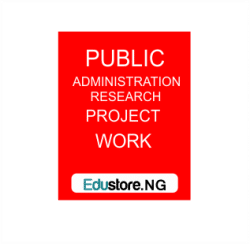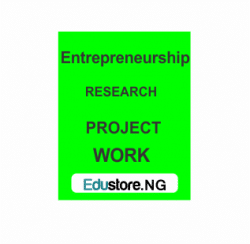Inter Governmental Relationship In Urban Governance In Nigeria: An Examination
There has been a growing incidence of poverty in sub-Saharan Africa over the last two decades. Poverty is a multidimensional social phenomenon that can be analytically divided into two main perspectives: human poverty which is the lack of human capabilities and income poverty, which is the lack of enough income- necessary to satisfy basic needs of the people in life. The paper examines several initiatives focused on poverty eradication that Nigeria have adopted through national actions to fight both human and income poverty. In analyzing the issues raised, we anchored the paper on an eclectic approach of radical, Marxist model of political economy and the social exclusion theories. The study established among others, that a lot of effort has been made in poverty reduction through poverty alleviation programs in Nigeria. However, it is of knowledge that in spite of the previous efforts of various governments to alleviate poverty in Nigeria and the efforts of the current government to effect same, nothing much had changed in the living conditions and standards of the people. The challenges of poverty alleviation strategies in the Nigerian situation were articulated in the context of sustainable socio-economic development and the paper concludes that poverty alleviation in contemporary’ Nigeria require both socio-economic policies geared towards sustainable development. It is the position of this paper that until African leaders in general and Nigeria in particular begin to think„ We” and not„ l”, the fight against poverty that could engender sustainable socio-economic development will for long remain a mirage.
Cover page
Table of Contents
Abstract
CHAPTER ONE
Introduction
CHAPTER TWO
POVERTY AND SOCIO-ECONOMIC DEVELOPMENT:
Conceptual and Theoretical Framework
CHAPTER THREE
POVERTY STATUS IN NIGERIA
Causes of Poverty
CHAPTER FOUR
POVERTY REDUCTION/ALLEVIATION PROGRAMMES IN NIGERIA
Nigerian Agricultural and Cooperative Bank (NACB)
Directorate of Foods, Roads and Rural Infrastructure (DFRRI)
National Directorate of Employment (NDE)
Peoples Bank of Nigeria (PBN)
Better Life Programme (BLP)
National Board for Community Banks (NBCB)
Family Economic Advancement Programme (FEAP)
National Poverty Eradication Programme (NAPEP)
Challenges and the Way Forward
CHAPTER FIVE
Recommendation
Conclusion
BIBLIOGRAPHY
- For Reference Only: Materials are for research, citation, and idea generation purposes and not for submission as your original final year project work.
- Avoid Plagiarism: Do not copy or submit this content as your own project. Doing so may result in academic consequences.
- Use as a Framework: This complete project research material should guide the development of your own final year project work.
- Academic Access: This platform is designed to reduce the stress of visiting school libraries by providing easy access to research materials.
- Institutional Support: Tertiary institutions encourage the review of previous academic works such as journals and theses.
- Open Education: The site is maintained through paid subscriptions to continue offering open access educational resources.




